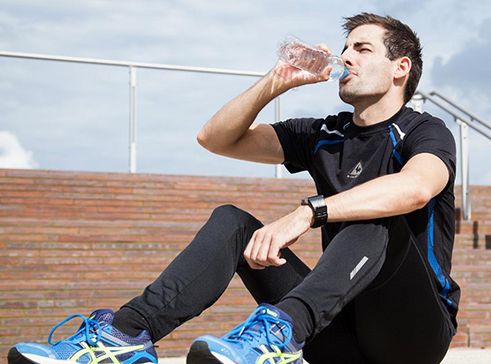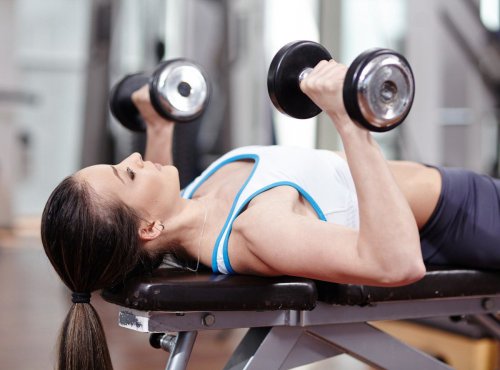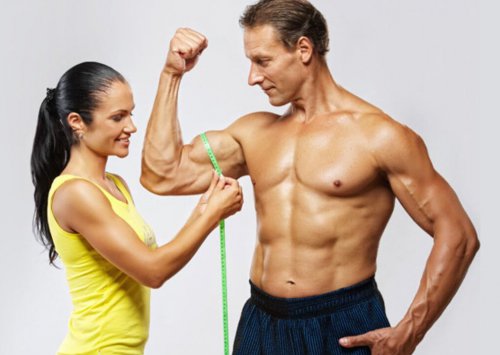
The whole world is obsessed with healthy living. People are mastering new methods, shaping not only their training regimens, exercise routines, and diet, but even their breathing and mindset. Meanwhile, many still don't know the most important fitness tips. So, what should you avoid during exercise?
1. Neglecting the choice of sportswear and shoes
Sportswear isn't an old synthetic tank top you can't afford to ruin, and certainly not shorts you wore last year. Workout clothes, like shoes, should be purchased from a specialty store and should be appropriate for your size, the season, and the conditions you'll be training in (at home, outdoors, at the gym, etc.). They should also be lightweight and not restrict movement. Experts advise against cotton sportswear: it quickly absorbs sweat, clings to the body, and prevents the skin from breathing. It's better if your clothes are made from a material that combines cotton, lycra, polyester, elastane, and nylon. Such sportswear doesn't stretch, holds its shape well, and feels comfortable on the body.
2. Exercise barefoot
It's best to overcome laziness and wear proper footwear to the gym. Exercising barefoot, in socks, or even flat sneakers will increase the strain on your spine and negatively impact its condition. Such barefoot exercise is especially harmful to those with vascular disease. Without proper athletic footwear, your blood vessels will experience double the strain, which will negatively impact the progression of your condition.
3. Use antiperspirant
During exercise, people sweat heavily—it's the body's natural way of eliminating toxins. Using antiperspirant interferes with this process, which can negatively impact health.
4. Refuse water
Drinking fluids during exercise is essential. During vigorous exercise, the body loses a lot of fluid, which needs to be replenished regularly to prevent dehydration. Even if you're not particularly thirsty, it's a good idea to allow yourself 2-3 sips of plain, still water at frequent intervals.
5. Listen to MP3 player
As researcher William Hodgetts (Associate Professor of Speech Pathology and Audiology in the Faculty of Rehabilitation Medicine) from the University of Alberta discovered, physical activity combined with loud music negatively affects hearing and can lead to complete hearing loss.
6. Run on asphalt paths
Hard asphalt doesn't absorb the shock generated when a runner's foot pushes off the ground, significantly increasing the impact load on the legs. This can lead to serious problems with the ankles, knees, hips, and even lower back. Therefore, if you can't run at a stadium with a specially designed running track, it's best to move your workout to a park with smooth, uneven dirt paths.
7. Run along the roads
Running increases breathing and speeds up metabolism. When a runner breathes clean air, their body is cleansed and oxygenated, while polluted air, on the other hand, clogs the body, which functions like a “vacuum cleaner” during running.
8. Run in the morning
Unlike the previous points, this one isn't really a prohibition, but rather something that's not recommended. ” According to human biorhythms, running is most beneficial between 8 and 10 p.m., about an hour after your last meal. After a run, you can only eat for 40 minutes, ” advises Dmitry Lvov, Master of Sports of International Class in Artistic Gymnastics.
9. Exercise when you are tired
If a person isn't getting enough sleep or is tired, physical activity won't produce any positive results. All that's likely to happen is a surge of stress hormones into the bloodstream.
10. Talking, watching TV, thinking about other things and being in a bad mood
All this distracts the main control organ—the brain—from the workout. It stops closely monitoring muscle activity, and the muscles begin to “slack off.” The effect of such training will be minimal. Fitness instructors advise closely monitoring your actions and sensations during exercise, “establishing psychological contact with your body.”
Each trainer or instructor can supplement this basic stop list with dozens of their own helpful tips and restrictions. But there's only one main golden rule: sport should be beneficial and bring good mood.






